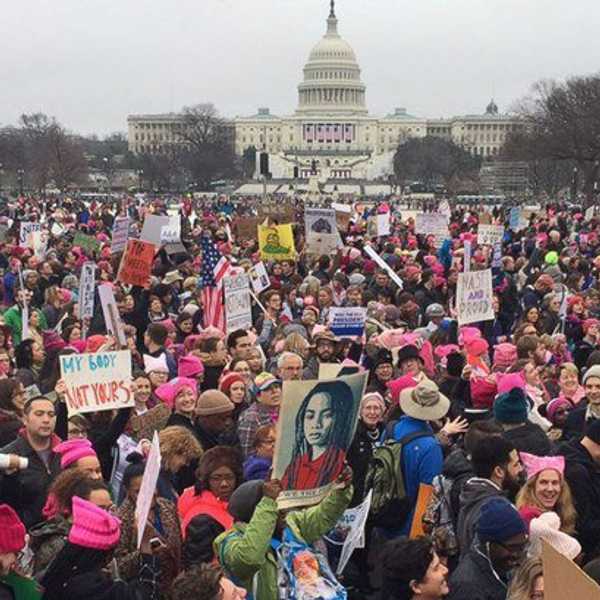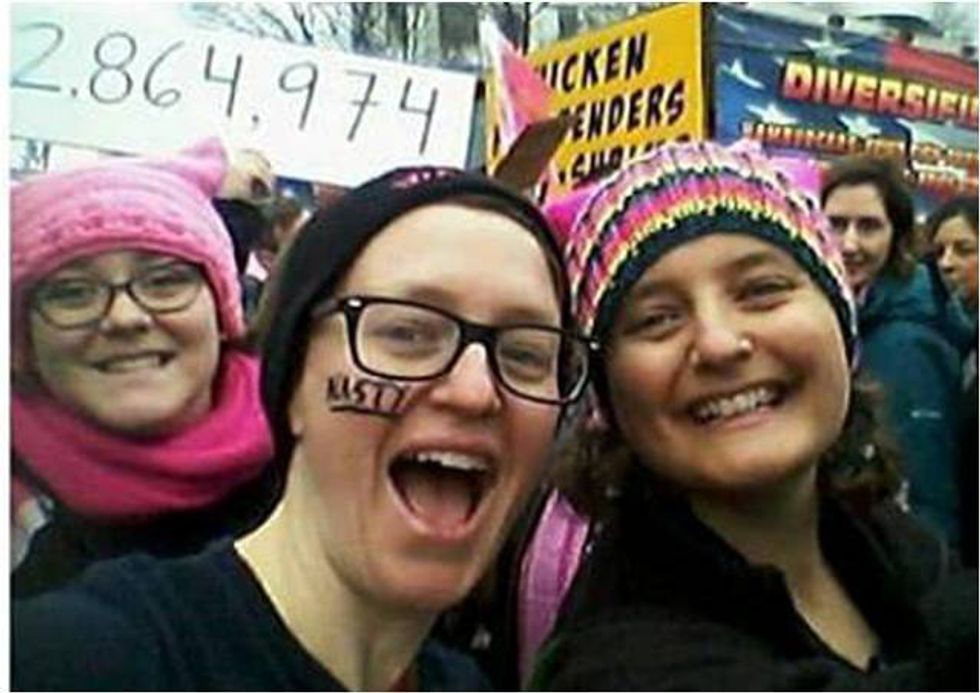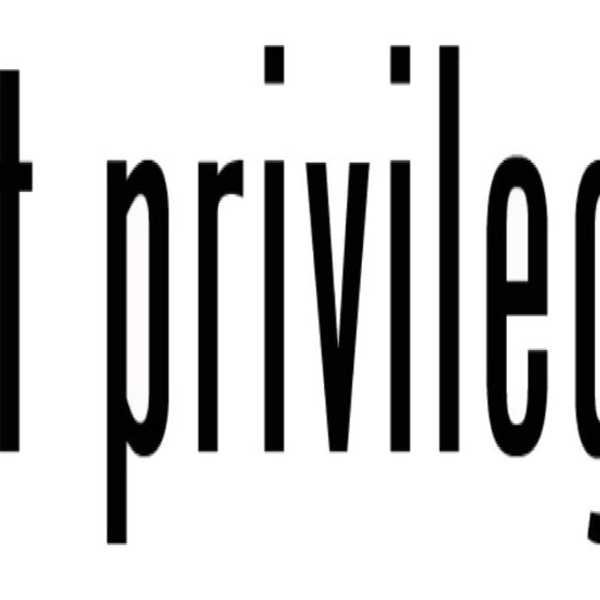Now that the excitement has died down a bit and the emotional high from the Women's March has been dampened by the onslaught of depressing and alarming developments in the Trump presidency, I think that some reflection is in order. I would like to address a few of the criticisms I have encountered about the march, point out a few things about the march that I found to be especially encouraging and exciting, and talk about what I hope to see moving forward from the march.
Criticisms
In the week since the march, dozens of the particularly clever and stirring handmade signs have gone viral, as have countless news articles and opinion pieces. The majority of what I have seen published about the march has been positive, but there have also been several criticisms.
1. The march was too white.
One criticism that I think is very relevant and worth paying attention to is the fact that the marches were very white. Of course, there is nothing wrong with white women marching, but there needs to be recognition that historically, women of color have been excluded from white feminism, and the fact remains that of the white women who voted, more than half voted for Trump (compared to less than 6% of black women). Feminism is great, but white feminism is white supremacy, which is unacceptable. However, the organizers of the Women’s March did a great job embracing intersectional feminism by choosing such a diverse group of remarkable women (and a few men) to speak at the march, and many of the speakers addressed the importance of intersectionality and inclusivity. We have come a long way in addressing racism in the feminist movement, but we still have a long way to go.
2. "The march was offensive."
Another prevalent criticism was that the march was offensive. Here’s the thing: being loud and challenging the status quo is kind of the point of marching and protesting. I totally get it if carrying a sign with a swear word or a cartoon depiction of a uterus is not your style or makes you uncomfortable. It used to make me a lot more uncomfortable than it does now, but that’s a separate issue; the point is, I get it. However, what I don’t get is being more offended by a sign than you are by the systems of oppression, injustice, and inequality that the people at the march spoke out against. (Here’s a video that perfectly illustrates this point.) One specific point that was very clear at the march but has not been as clear on the internet is the purpose and meaning of the pink hats.
I’m just going to spell it out. Some critics have incorrectly given the impression that people who wore the ‘pussy hats’ were doing it just to be crude. That is actually really ironic because, in addition to being a play on words (pussy cats, the hats had cat ears, thus, pussy hats), one of the goals of the PussyHatProject is to reclaim the word “pussy” for empowerment rather than the degradation for which it has previously been used. In addition to reclaiming the word, the hats were a response to Trump’s horrifying assertion that he can “grab [women] by the pussy”. Sexual assault is a very serious issue. At least one in five women are sexually assaulted in their lifetime, and for Trump to openly admit to sexually assaulting women and still be elected president is totally unacceptable.
3. "The march was unnecessary."
The final criticism, which seemed to come mostly from women who did not attend the march, was that the message of the march was unnecessary. Please don’t misunderstand me. I am not about to say that every woman should have gone to the march, that every woman felt welcome at the march, or that every woman needs to agree with all of the platforms of the march. However, if you think that all of the issues that people were marching for are irrelevant, I’m going to give you the benefit of the doubt and guess that you feel that way because you don’t feel oppressed or notice oppression in your daily life. Don’t get me wrong, I wish that no one felt oppressed, including you, whoever you are, but the fact remains that people are oppressed and suffer injustices at the hands of fellow human beings.
“If you are neutral in situations of injustice, you have chosen the side of the oppressor.” - Desmond Tutu
It’s really uncomfortable to deal with the fact that we have inadvertently contributed to systems of oppression; it’s really uncomfortable to confront our own privilege and learn how to stand up to injustice and oppression. Marching is certainly not the only way to stand up against oppression, nor can it be the only thing we do to stand up against oppression, but it has been part of very effective movements in the past that have made progress for justice and humanity. Therefore, the Women’s March is very relevant and very necessary. So is continuing to act.
Successes
Despite the criticisms it has received, the march was overwhelmingly positive. The empowerment and positive message of the march extended for several days as it reverberated throughout the internet and the news. It was especially encouraging when the attendance estimates rolled in, showing that the scale of the march was, in many ways, unprecedented and confirming that the march was several times size of the inauguration crowd. Here are some specific ways in which the Women’s March was great.
1. Solidarity
The Women’s March on Washington and the 650 sister marches that took place around the United States and the world were a stunning demonstration of strength and solidarity. Estimates published in The Atlantic show that between 3.3 and 4.6 million people marched, at least 500,000 of whom were in Washington, D.C. The sheer scale of the march has demanded the attention of national headlines and social media all week. In the days following the march, my Facebook feed was flooded with selfies, pictures, and posts on my family, friends, and distant acquaintances at the marches around the country. For me, the march was an amazing and unforgettable experience. I was blown away by the solidarity and camaraderie that formed so naturally within the pink sea of random strangers. Together, we made a statement: we are here, we care, and we will not be silent. In addition, being at the march and knowing that so many other people were there as well was a mental and emotional boost. In the midst of several months of feeling pretty upset and powerless, the Women’s March was a day of energy, empowerment, and hope.
2. Diversity and intersectionality
The marchers in Washington, D.C. heard speeches given by an impressive, diverse group of remarkable activists and celebrities. The organizers did an excellent job laying intersectionality as the foundation of the March, and this was made most apparent by the fact that the speakers represented such a range of identities, communities, and issues.The most powerful aspect of the march was the diversity of the issues represented there. Even though the march was officially centered on women, marchers spoke out about practically every social issue facing our nation today. People made signs talking about addressing women’s rights, civil rights, environment, Black Lives Matter, immigration, islamophobia, free speech, police brutality, poverty, mass incarceration, the Dakota Access Pipeline, the Flint water crisis, pussies, racism, sexism, LGBTQ+, education, people with disabilities, abortion, the wage gap, mental health, the rights of Native Americans and indigenous peoples, the refugee crisis, Betsy DeVos, fake news, hate crimes, the KKK, Trump, Pence, fascism, the preservation of the republic as we know it, and more.
3. New activists
Like many people I know, Women’s March was my first personal experience with protesting, marching, and being in that large of a crowd. Many people I have talked to since the election have expressed feeling as though there is now a large weight or a dark cloud hanging over their outlook on the future and that part of the reason they went to the march is that they needed to do something about all of the depressing and concerning developments that have unfolded since the election. You are not alone; I have felt that way too. It is worth mentioning, however, that the new feelings of “I feel betrayed by my country” and “there is no way that this is going to end well” are not new feelings for a lot of marginalized people. Up to this point, my white privilege and class privilege have protected me from feeling truly vulnerable and targeted, and to be honest, the ways in which I am privileged will probably continue to protect me from feeling the full force of the Trump administration. Several women of color, speakers and attendees, at the Women’s March also brought this up. They were not saying that more privileged women who are feeling this way shouldn’t be, but they were saying, “Welcome to the club. We’ve been here for centuries and it sucks.” If there is any silver lining to the Trump presidency, it is that it woke a lot of people up to the reality we live in and has spurred many to action. It is unfortunate that something so awful had to happen to make so many people, myself included, realize the extent to which prejudice and injustice are still powerful, ugly forces stepped into almost every institution in our society. But now that we are here, it is even more imperative that none of us grows complacent. Now that there are so many new activists out there, it is time for us to use our privilege to educate ourselves and fight for what’s right.
Moving Forward
History books will certainly mention this march. The question that remains is what the next sentence will be. I sincerely hope that it is not 'Unfortunately, the movement quickly lost momentum, and the Trump administration met little resistance as it cut apart and unraveled the fabric of the country,' but rather, 'It was a spark that ignited a movement of millions of Americans and people around the world who organized and united to fight for the rights of women, people of color, LGBTQ+ people, immigrants, Muslims, the poor, the disenfranchised, and all people. They refused to be ignored and as a result, won several significant battles.' The Women’s March was great, but it is just the beginning. Now is the time for reflection, education, organization, and action to combat inequality and injustice on both personal and systemic levels.
Note: If you are wondering why I did not address the pro-life/pro-choice controversies surrounding the march, the reason is that I did not want to cover such a complicated and misunderstood issue as a tangent inside an article that is really not about that. Stay tuned for a future article on that issue!


























